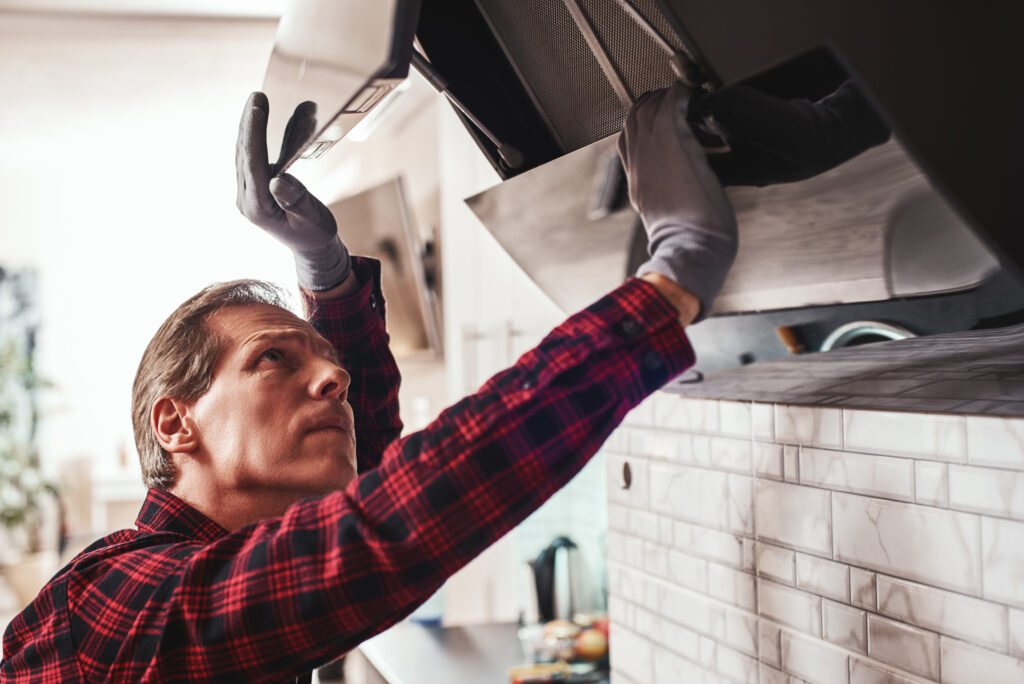Table of Contents
- Grease Fire Containment Strategies Using Hood Cleaning
- The Importance of Hood Cleaning
- Grease Fire Containment Strategies
- 1. Install Fire Suppression Systems
- 2. Train Staff on Fire Safety
- 3. Maintain a Clean and Organized Kitchen
- 4. Use Proper Cooking Techniques
- 5. Conduct Regular Inspections
- Frequently Asked Questions
- 1. How often should hood cleaning be performed?
- 2. Can I clean the hood system myself?
- 3. What are the signs of a grease fire?
- 4. How can I prevent grease buildup in the hood system?
- 5. What should I do if a grease fire occurs?
- Summary
Grease Fire Containment Strategies Using Hood Cleaning

Grease fires are a serious hazard in commercial kitchens, and they can quickly escalate into a dangerous situation if not properly contained. One effective strategy for preventing and containing grease fires is through regular hood cleaning. In this article, we will explore the importance of hood cleaning in grease fire containment, discuss various strategies and techniques, and provide valuable insights for kitchen owners and operators.
The Importance of Hood Cleaning
Hood cleaning plays a crucial role in preventing and containing grease fires in commercial kitchens. The hood system, which includes the exhaust hood, filters, and ductwork, is designed to remove smoke, heat, and grease-laden vapors from the cooking area. However, over time, grease and other flammable substances can accumulate in the hood system, increasing the risk of fire.
Regular hood cleaning is essential for several reasons:
- Fire Prevention: Grease buildup in the hood system can ignite and spread rapidly, leading to a grease fire. By keeping the hood system clean, the risk of fire is significantly reduced.
- Improved Air Quality: A clean hood system ensures that smoke, odors, and harmful particles are effectively removed from the kitchen, creating a healthier and more comfortable environment for kitchen staff.
- Compliance with Regulations: Many jurisdictions have specific regulations and codes regarding hood cleaning frequency and standards. Regular cleaning helps kitchen owners and operators comply with these regulations and avoid penalties.
- Extended Equipment Lifespan: Grease buildup can damage the hood system and other kitchen equipment, leading to costly repairs or replacements. Regular cleaning helps extend the lifespan of the equipment and reduces maintenance expenses.
Grease Fire Containment Strategies
While regular hood cleaning is essential, it is also important to have additional strategies in place to contain grease fires effectively. Here are some proven strategies:
1. Install Fire Suppression Systems
Fire suppression systems are specifically designed to quickly detect and suppress grease fires. These systems typically consist of automatic fire extinguishers, which are activated when a fire is detected. Installing a fire suppression system in the kitchen, especially near cooking equipment, can significantly reduce the risk of fire spreading and causing extensive damage.
2. Train Staff on Fire Safety
Proper training is crucial for all kitchen staff to ensure they are aware of fire safety protocols and know how to respond in case of a grease fire. Training should include information on how to use fire extinguishers, when to evacuate, and how to shut off gas and electrical supplies in an emergency. Regular fire drills should also be conducted to reinforce the training and ensure everyone is prepared.
3. Maintain a Clean and Organized Kitchen
A clean and organized kitchen is less likely to experience a grease fire. Regular cleaning of cooking surfaces, equipment, and floors helps prevent grease buildup and reduces the risk of ignition. Additionally, keeping flammable materials away from heat sources and maintaining clear pathways for evacuation can contribute to a safer working environment.
4. Use Proper Cooking Techniques
Using proper cooking techniques can minimize the risk of grease fires. For example, avoiding overcrowding of pans, using lids to contain splatters, and monitoring cooking temperatures can help prevent grease from overheating and igniting. It is also important to never leave cooking unattended, as this increases the chances of a fire starting.
5. Conduct Regular Inspections
Regular inspections of the hood system, exhaust fans, and ductwork are essential to identify any potential issues or areas of concern. These inspections should be performed by trained professionals who can assess the condition of the system, identify any grease buildup, and recommend appropriate cleaning and maintenance schedules.
For professional hood cleaning services in Ontario, visit Ontario Hood Cleaning.
Frequently Asked Questions

1. How often should hood cleaning be performed?
Hood cleaning frequency depends on several factors, including the type of cooking, volume of cooking, and local regulations. However, as a general guideline, hood cleaning should be performed at least every three to six months. High-volume kitchens or those that use a lot of grease may require more frequent cleaning.
2. Can I clean the hood system myself?
While it is possible to clean the hood system yourself, it is highly recommended to hire professional hood cleaning services. Professional cleaners have the necessary equipment, expertise, and knowledge of local regulations to ensure a thorough and compliant cleaning process. They can also identify any potential issues and provide appropriate recommendations.
3. What are the signs of a grease fire?
Signs of a grease fire include smoke, a strong burning smell, flames coming from the cooking equipment, and a hot or smoky kitchen environment. It is important to act quickly and follow fire safety protocols to contain and extinguish the fire.
4. How can I prevent grease buildup in the hood system?
Preventing grease buildup in the hood system requires regular cleaning and maintenance. In addition to professional hood cleaning, kitchen staff should also perform daily cleaning of cooking surfaces, filters, and other accessible parts of the hood system. Properly disposing of grease and using grease traps can also help prevent buildup.
5. What should I do if a grease fire occurs?
If a grease fire occurs, follow these steps:
- Turn off the heat source if safe to do so.
- Do not pour water on the fire, as it can cause the fire to spread.
- If the fire is small and contained, use a fire extinguisher specifically designed for grease fires to smother the flames.
- If the fire is spreading or cannot be controlled, evacuate the area and call emergency services.
- Do not attempt to fight the fire if it is too large or if you are unsure of how to use a fire extinguisher.
Summary
Hood cleaning is a critical component of grease fire containment strategies in commercial kitchens. Regular cleaning of the hood system helps prevent grease buildup, reduces the risk of fire, and ensures compliance with regulations. Additional strategies, such as installing fire suppression systems, training staff on fire safety, maintaining a clean kitchen, using proper cooking techniques, and conducting regular inspections, further enhance fire containment efforts. By implementing these strategies and following best practices, kitchen owners and operators can create a safer working environment and minimize the risk of grease fires.
For professional hood cleaning services in Ontario, visit Ontario Hood Cleaning.
- Grease Fire Containment Strategies Using Hood Cleaning
- hood cleaning
- kitchen exhaust cleaning
- restaurant hood cleaning






